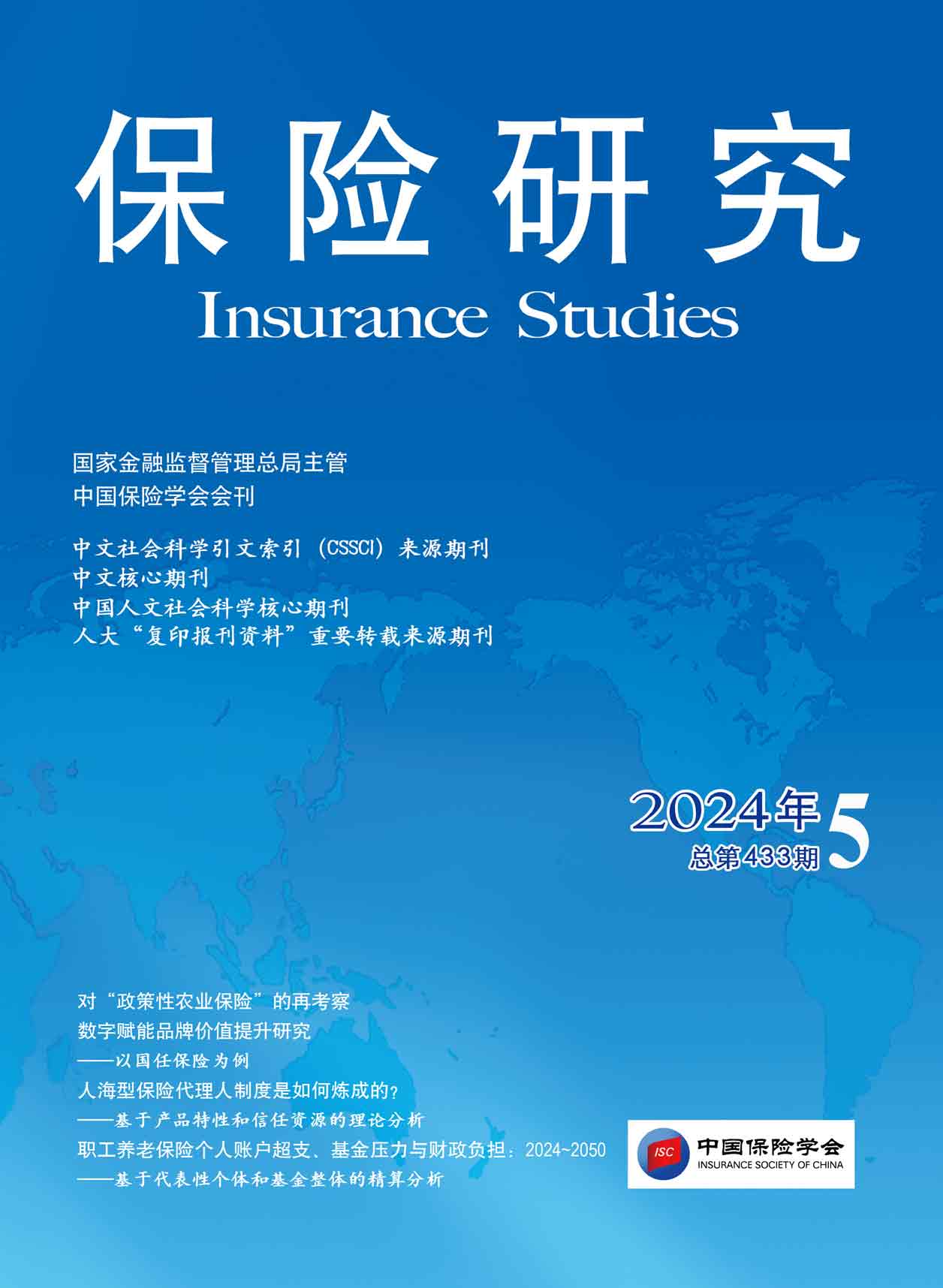
《保险研究》20240504-《人海型保险代理人制度是如何炼成的?——基于产品特性和信任资源的理论分析》(郭振华、倪红霞)
[中图分类号]F840.3[文献标识码]A[文章编号]1004-3306(2024)05-0043-19 DOI:10.13497/j.cnki.is.2024.05.004
资源价格:30积分
- 内容介绍
[摘 要]保险代理人制度对寿险业发展至关重要,但现有文献尚未对寿险业普遍采用的人海型保险代理人制度的内在机理和经营规律进行深入理论分析。本文借助行为保险经济学揭示的消费者非理性导致的保险产品弱需求特性,引入认知心理学中的有限注意力理论、社会学中的信任理论以及基于社会脑的邓巴数理论,对保险代理人制度进行系统理论分析,得到如下结论:第一,寿险业的大多数产品都是承保小概率风险的保障性产品和长期储蓄性产品,这些产品的弱需求特性会导致消费者注意力配给不足,进而导致直接推销这些弱需求类人身险失效;第二,弱需求类人身险产品强烈依赖消费者对业务员的认同型信任(而非消费者对公司的认知型信任)达成交易,认同型信任是寿险业看重的重要资源;第三,实施人海型保险代理人制度就是为了有效利用高度分散的认同型信任资源,推动业务快速发展,但必然会带来代理人素质偏低、大进大出、重增员轻培养等问题;第四,代理人数触及市场容量决定的上限后,会逐渐走低,带动保险业务规模下滑,由此,代理人制度将不得不从“主要利用现成认同型信任资源的初级阶段”向“主要利用新创认同型信任资源的新阶段”痛苦转型,直至进入新的市场均衡。本文可为保险代理人制度改革提供一定的理论基础。
[关键词]保险代理人制度;人海战术;注意力资源;认同型信任;制度转型
[作者简介]郭振华,上海对外经贸大学金融管理学院教授、保险系主任;倪红霞,上海对外经贸大学金融管理学院保险系讲师。
How Has the Mass Insurance Agent System been Formed—A Theoretical Analysis Based on Product Characteristics and Trust Resources
GUO Zhen-hua,Ni Hong-xia
Abstract:The insurance agent system is crucial for the development of the life insurance industry,but existing literature has not yet conducted in-depth theoretical analysis of the inherent mechanism and operating rules of the widely adopted mass insurance agent system in the life insurance industry.Based on the weak demand characteristics of insurance products caused by consumer irrationality revealed by behavioral insurance economics,this paper introduces the Limited Attention Theory in cognitive psychology,the Trust Theory in sociology,and the Dunbar Number Theory based on social brain to conduct a systematic theoretical analysis of the insurance agent system.The following conclusions are drawn.Firstly,due to the fact that most life insurance products are long-term savings products and protection products that underwrite small probability risks,the weak demand characteristics of these products can lead to insufficient attention allocation of consumers,leading to the failure of direct promotion of these weak-demand life insurance products.Secondly,weak-demand life insurance products strongly rely on consumers’ identification-based trust in salespeople (rather than consumers’ cognitive trust in the company) to close transactions,therefore,identification-based trust is an important resource valued by the life insurance industry.Thirdly,implementing the mass agent system can effectively utilize highly dispersed identification-based trust resources and quickly promote life insurance business.However,it will inevitably lead to problems such as low agent quality,high turnover,and emphasis on recruitment but neglecting training.Fourthly,once the number of agents reaches the upper limit determined by market capacity,the number of agents will gradually decrease,leading to a decline in the scale of insurance business.As a result,the insurance agent system will have to undergo a painful transformation from the "primary stage of mainly utilizing existing identification-based trust resources" to the "new stage of mainly utilizing newly created identification-based trust resources",until entering a new market equilibrium.This article can provide theoretical basis for the reform of the insurance agent system.
Key words:insurance agent system;mass strategy;attention resources;identification-based trust;institutional transformation
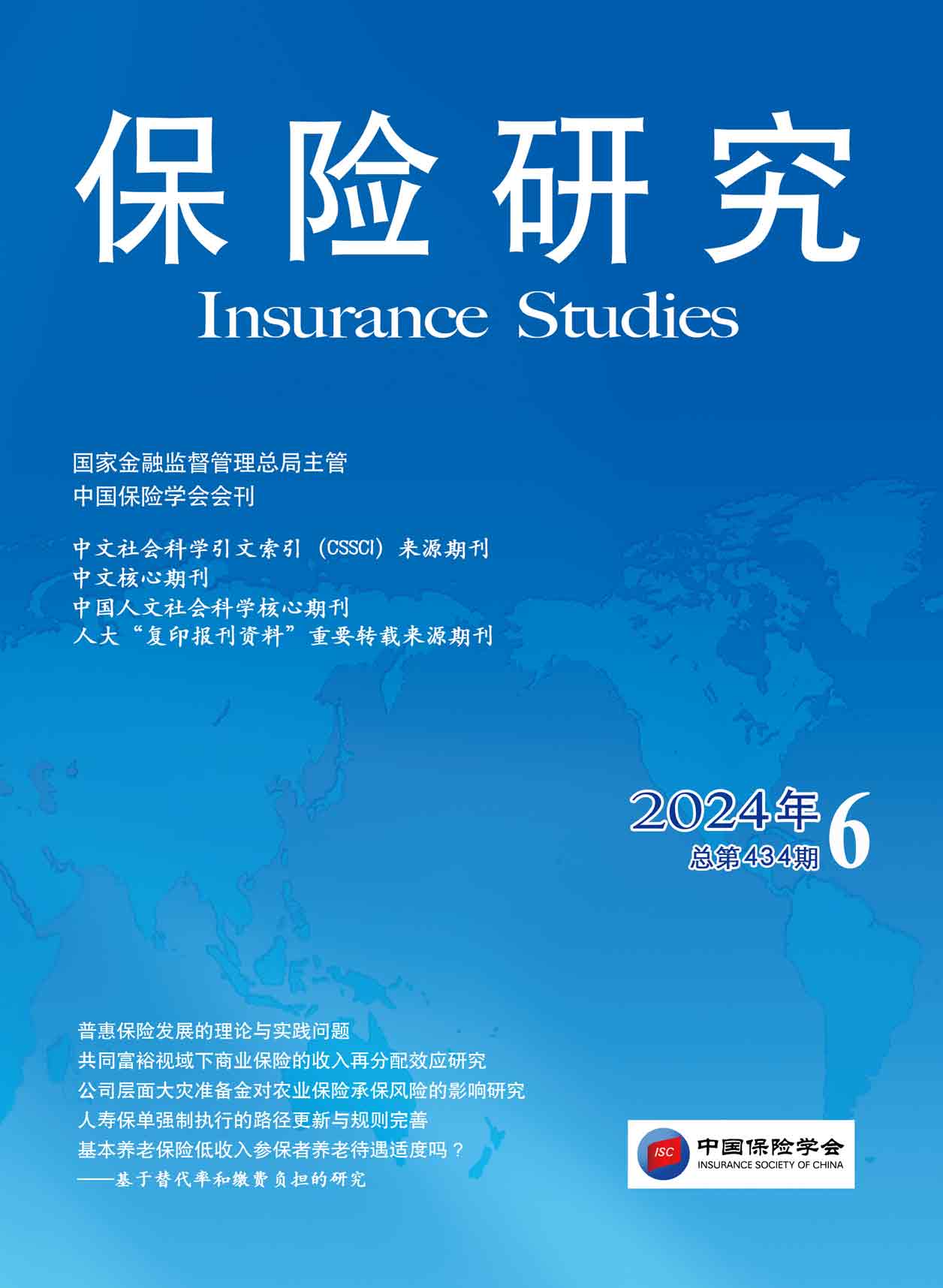
《保险研究》20240601-《普惠保险发展的理论与实践问题》(陈秉正、毛羽)
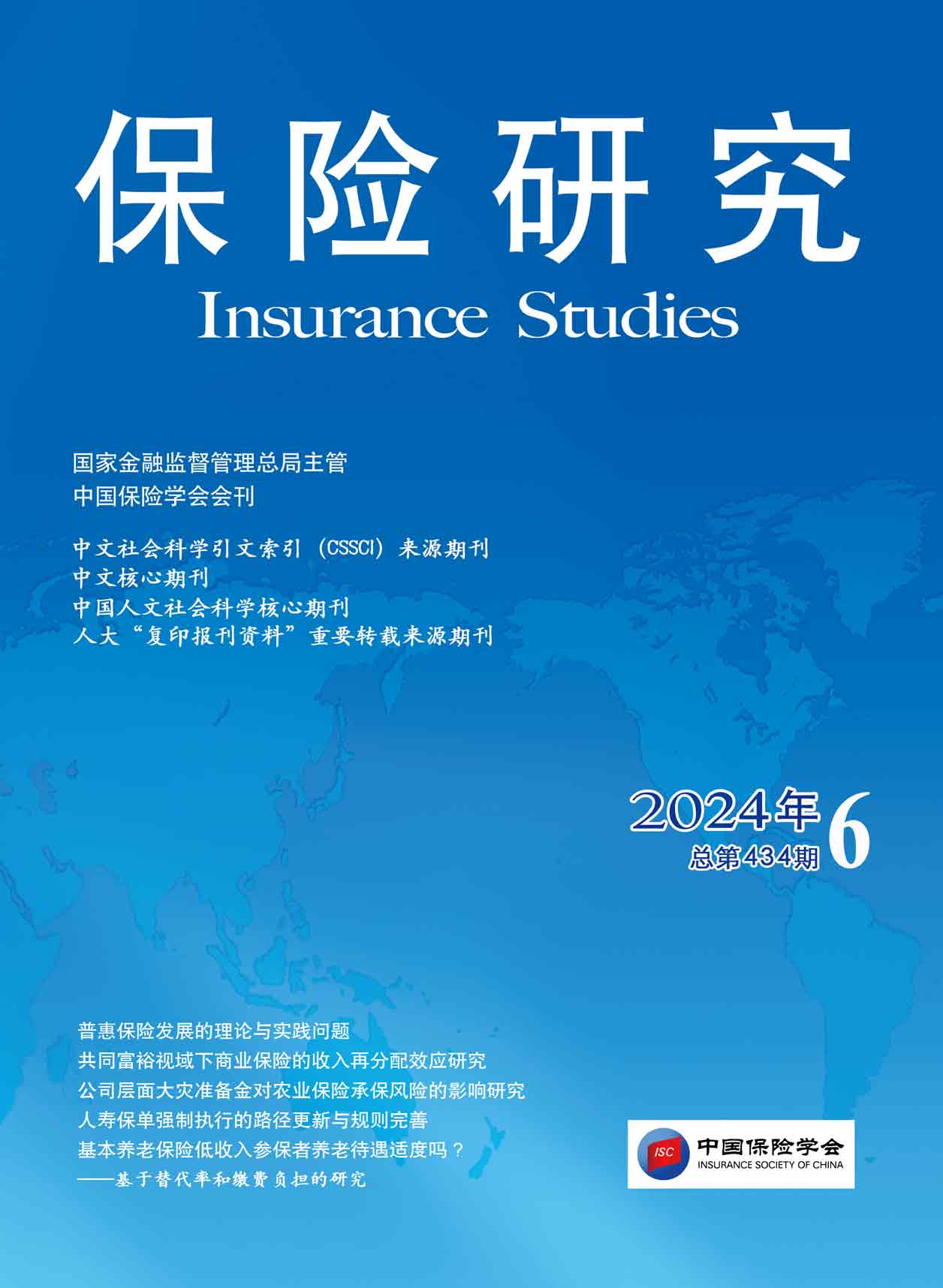
《保险研究》20240602-《共同富裕视域下商业保险的收入再分配效应研究》(张宗军、党新宇)
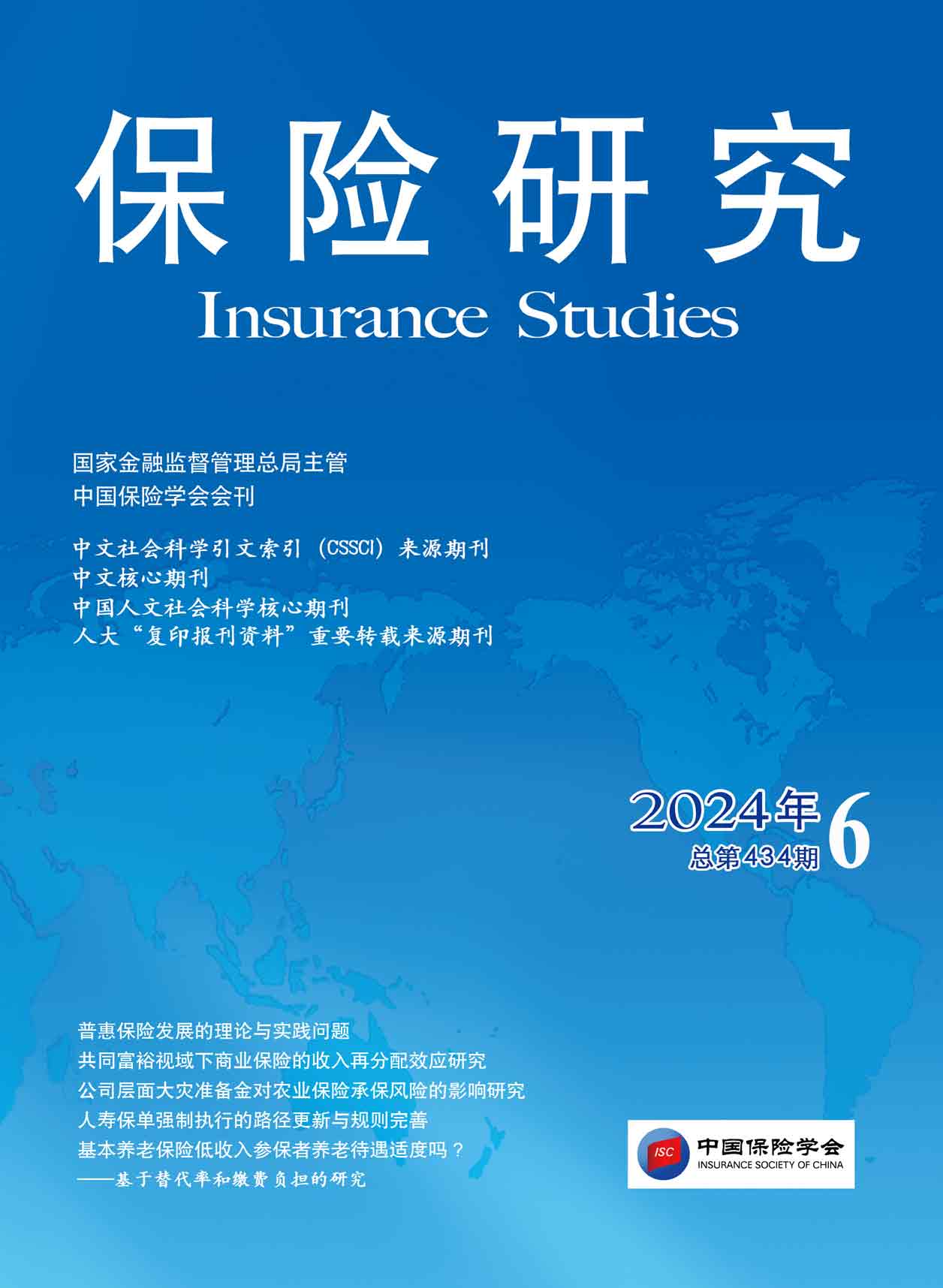
《保险研究》20240603-《政府引入商业保险参与社会治理的典型模式与应用路径研究》(高凯、丁少群)
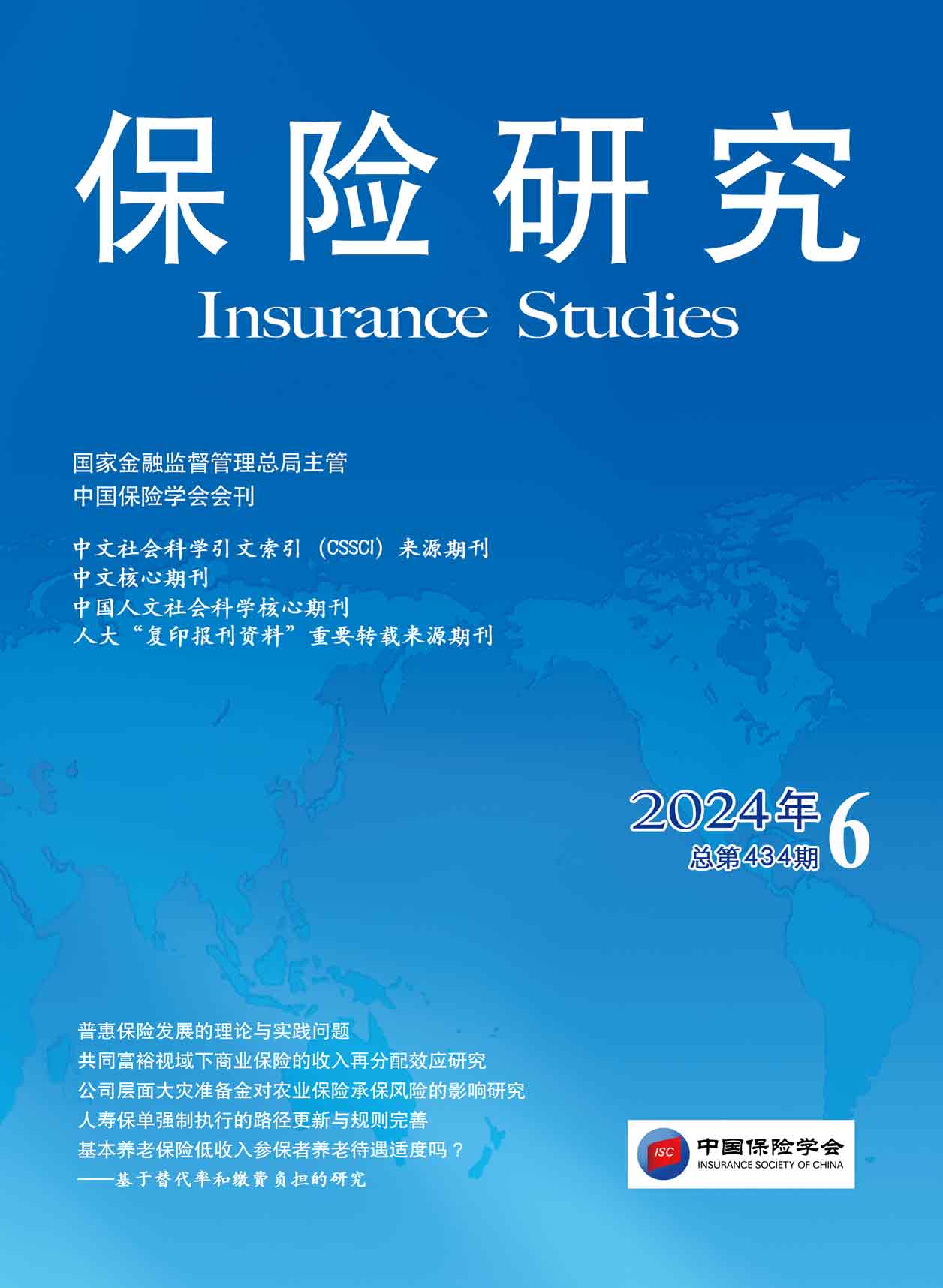
《保险研究》20240604-《险资持股与上市公司经营风险》(王莉、王国军)
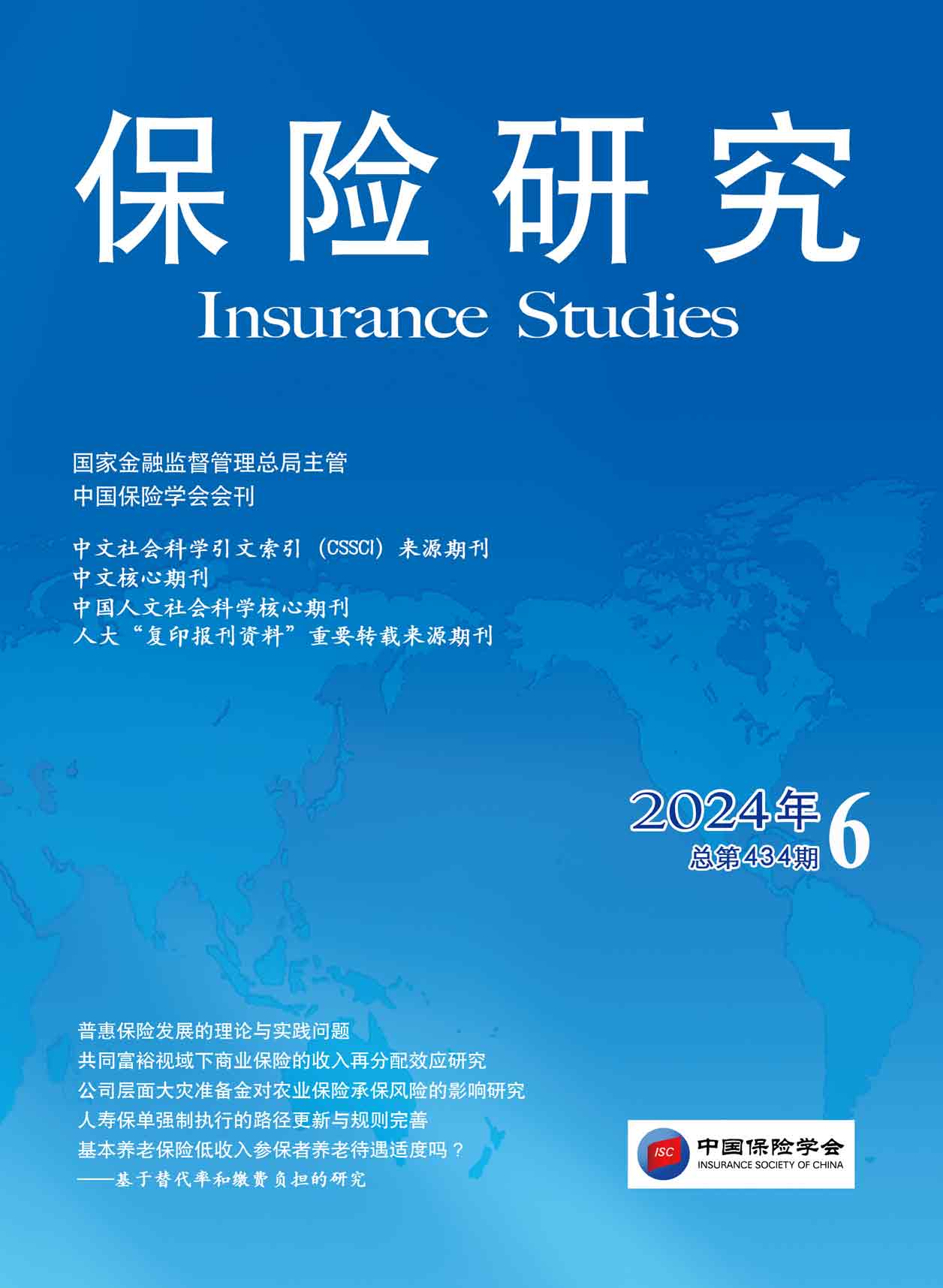
《保险研究》20240605-《基于R-Vine Copula的财险公司经济资本度量与分散化效益研究》(郑敏、郑苏晋、刘皖)
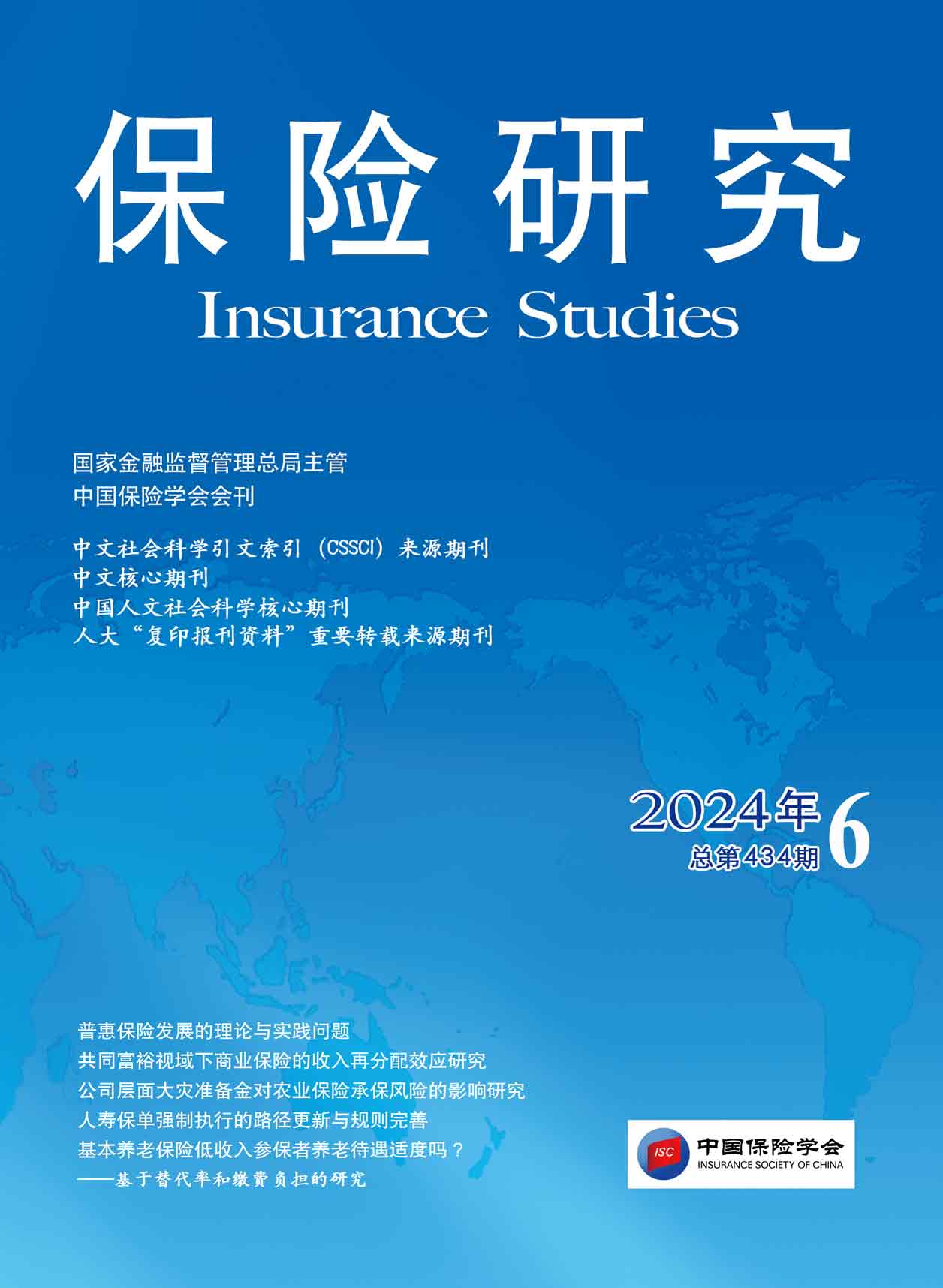
《保险研究》20240606-《政策性农业保险对农户绿色生产的影响研究——基于4省小麦种植户的调查数据》(张旭光、柴智慧)
